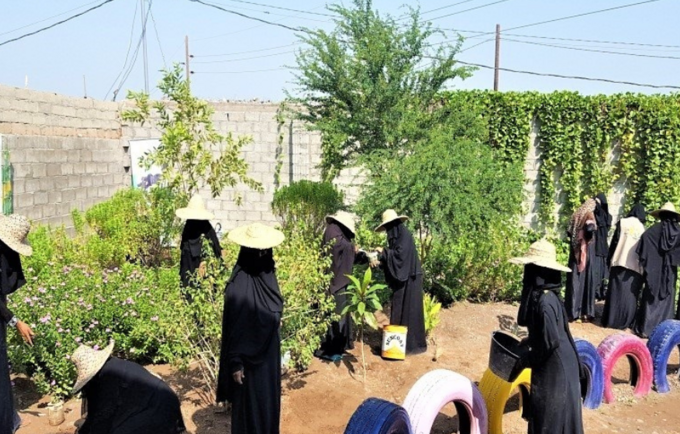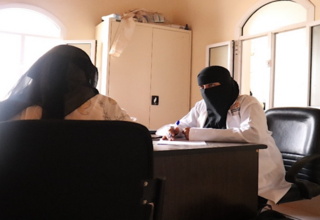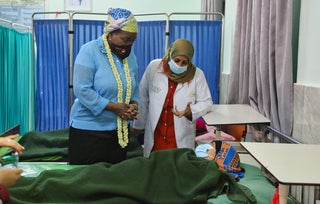At just 15 years old, Hiam was forced to make ends meet for her family.
When war in Yemen escalated in 2015, her father’s less than a dollar-a-day job of carrying goods by donkey went with it, and despite his best efforts, there was no more work to be found.
Her mother, gravely ill with cancer, required constant care herself, so as the eldest child in a family of nine, Hiam stepped up to care for her siblings, and to ensure the family survived.
“Giving up on school was the hardest part for me,” says Hiam. “I still feel deep sadness, but fate takes you down paths you don't want, so I learned to live, fight, and strive to reach my goals.”
She trekked out to distant farms to buy vegetables and sell them in her neighbourhood. The money covered her family’s basic needs, yet the work came with hidden, cumulative costs.
“As the only girl in the market, there was so much abuse, every single day. This all added to my sadness. It had a significant effect on me,” says Hiam.
Afraid and under immense pressure, Hiam was close to breaking point when she heard about a UNFPA-supported safe space for women and girls. In desperation, she reached out for help.
Acute crisis
Yemen is one of the world’s worst humanitarian crises. 21.6 million people need assistance.
Women and girls are bearing the brunt of the eight year crisis, as around 80 per cent of the 4.5 million people displaced are women and children. Around 26 per cent of displaced households are headed by women, and gender-based violence spikes in crises.
On the west coast, Al Hudaydah Governorate has been hit-harder than many other regions, with the strategic Red Sea Port in Hudaydah the scene of fierce fighting.
Waves of displaced people have passed through Hiam’s nearby Al Jaharri District, and like many areas, most people are struggling to find safe drinking water, food, jobs and health services.
Green shoots
“Hiam arrived (at the safe space for women and girls) in a terrible state,” says the social worker that received her. “You could see signs of stress, fatigue and illness written deep into her face.”
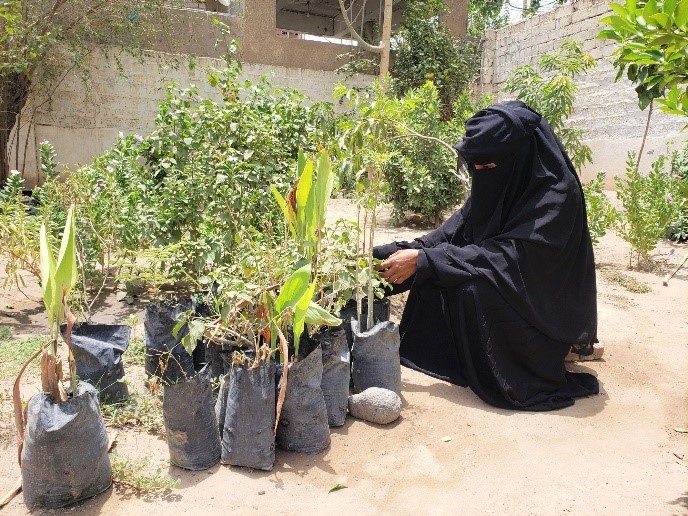
Hiam received counseling from a group of trained professionals for a month, and having built back her confidence, she took classes in sustainable farming to secure her family’s future.
UNFPA has set up 29 safe spaces for women and girls across Yemen, as well as eight shelters for women and girls, and five specialized mental health centres to serve the most vulnerable.
Supported with funding from the United Nations Central Emergency Response Fund, Denmark, the European Union, Iceland, KSrelief, Netherlands, Norway, Sweden, Switzerland, USAID’s Bureau for Humanitarian Assistance and Yemen Humanitarian Fund. The safe spaces provide women and girls with access to protection services, a safe place to access information on further support, and to regroup and rebuild their social networks.
They also provide referrals for medical care, legal assistance, psychosocial support and crucial livelihood skills training, especially for women-led households.
Through the safe space, Hiam learned to cultivate and care for land, vegetables and fruits, and went on to receive a grant of US$500 to start her own green farming business.
Today, she makes around $30-50 a month, which keeps her seven siblings in school. Her home farm also produces enough food for three meals a day for the whole family.
"Now I’m an agriculturalist, and my life and economic situation have really improved. Everyone calls me ‘the agricultural girl’ and I love that,” Hiam says.
Hiam loves the environment and works to protect it throughout her business. She does not use chemicals or pesticides, and she only uses manure as a fertilizer.
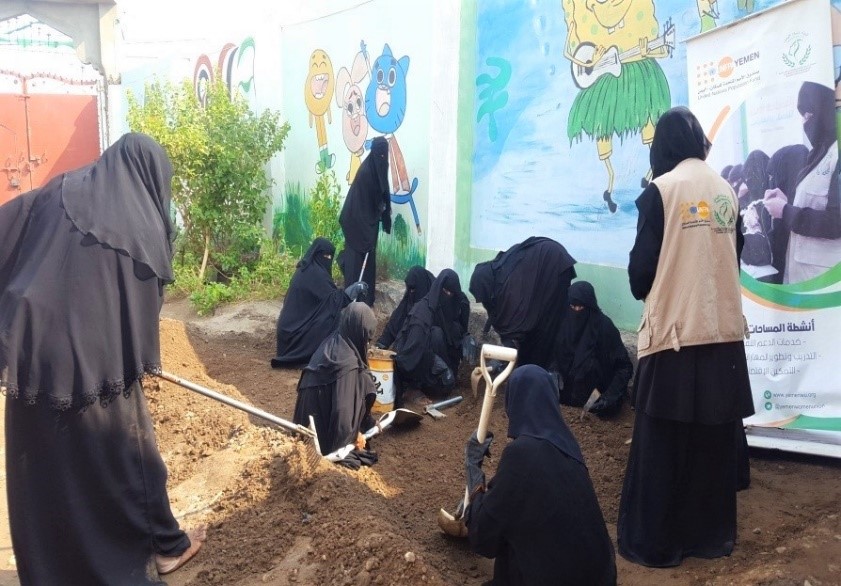
“Hiam’s story is one of hope, strength and resilience that all girls can aspire to. Women and girls like Hiam are overcoming tremendous adversity, and stepping up to become leaders. Young people in Yemen are yearning to build peace, and to secure a sustainable future, so it is vital that we support them,” says Enshrah Ahmed, UNFPA Representative in Yemen.
Hiam’s message to women and girls is simple: “Never lose hope. Never despair. Always believe in yourself and always keep striving to reach your goals.”
